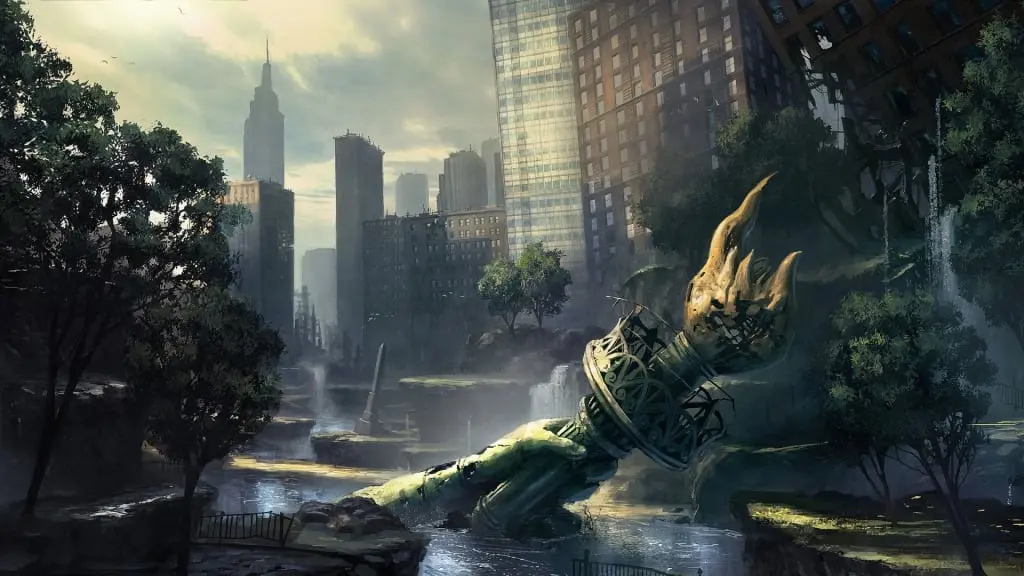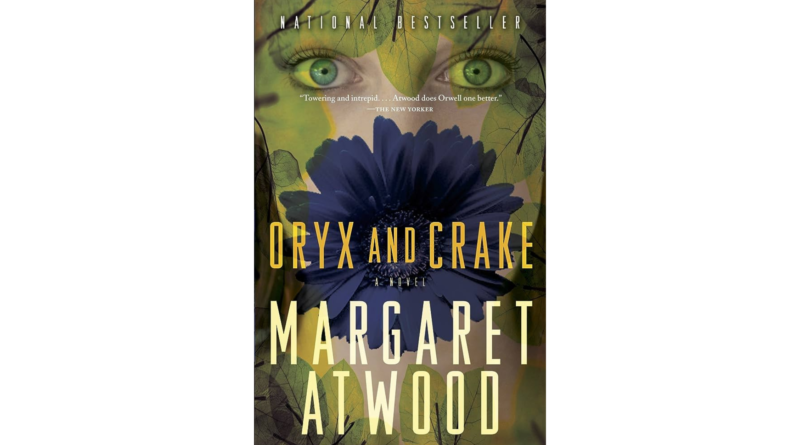Is STEM Actually Destructive? | AP Lit Book Review
In our largely STEM-orientated school, it’s almost become a running joke for the humanities to be made fun of, with English especially attracting little attention. In the AP Chemistry classroom sat a full room of eager students ready to engage in the sciences, whereas AP Literature holds a mere 11 students, with passers-by throwing side eyes at the bleak sight. Despite all this, as a humanities student myself, I could only say that this class has offered me tremendous amounts of insight to me in the span of a single novel (Mr. Hedges is great at this). And, coincidentally, the same novel happens to discuss a theme of advances in sciences versus the downfall of humanity. The said novel is Oryx and Crake by Margaret Atwood, a thought-provoking dystopian tale that delves into a future where scientific experimentation and corporate power have dire consequences for humanity.

The story revolves around Jimmy, who is now known as Snowman, living in a world that has been ravaged by a catastrophic event. He’s one of the few remaining humans, trying to survive in a desolate landscape. His only companions are the Crakers, genetically engineered humanoids created by his brilliant friend Crake.
The novel unfolds through flashbacks, revealing the events that led to the collapse of civilization. Crake, a scientific genius, is a central character. He and Jimmy were childhood friends, and their paths diverge as they grow older. Crake becomes involved in morally ambiguous scientific projects that push the boundaries of genetic engineering. Oryx, a mysterious and alluring woman, plays a significant role in both Jimmy and Crake’s lives. She becomes a pivotal character as her connections to Crake’s projects are unveiled.
The narrative explores themes of bioengineering, corporate greed, the ethical dilemmas surrounding scientific advancements, and the consequences of unchecked power. Margaret Atwood’s novel serves as a cautionary tale about the potential ramifications of our technological and scientific ambitions if they are not guided by moral and ethical considerations. It’s a haunting and gripping story that encourages readers to reflect on the potential future consequences of our actions in the present.
As for me, a dystopian fiction enthusiast, I found myself completely captured in this story. Atwood’s writing is top-notch. She paints a vivid picture of a world gone wrong, where science has run amok, and corporations rule the show. You’ll be turning the pages faster than you can say “genetic experiments.” Moreover, the characters are relatable, especially Jimmy, the protagonist. You’ll feel for him as he deals with the fallout of his actions in a world falling apart. Oryx and Crake, with their intriguing personalities, add depth to the story. The book makes you think about the consequences of scientific advancements and the power of big companies. It’s not a light read, and definitely has sensitive themes, but it’s worth it if you sit down to ponder over the deeper implications and symbolisms. And hey, Atwood adds a touch of dark humor to the mix throughout the novel, which can be pretty amusing in the midst of all the chaos. Solid 8.5/10 rating.

Remember, while our school is very STEM centered, it’s crucial to keep a well-rounded perspective—don’t let the maths and the sciences turn you into a human calculator! After all, just as Oryx and Crake has taught us, life’s most complex equations can’t always be solved with mere objectivity. Sometimes, a little art, philosophy, emotions, or even a dose of humor is the missing variable that might be the key to saving the world.

